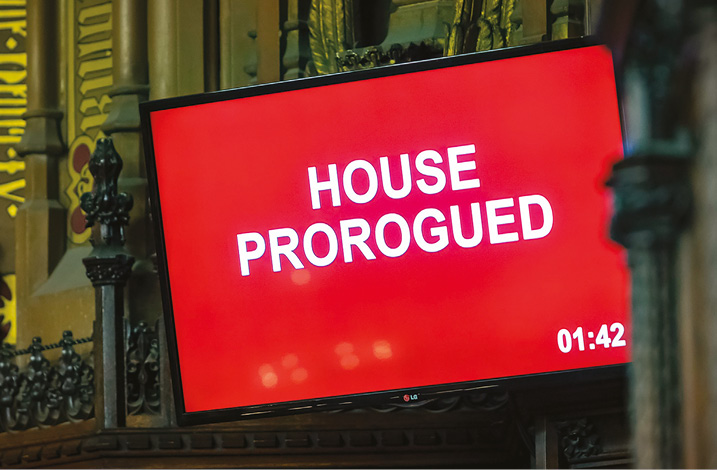
Nicholas Dobson mulls recent Parliamentary shenanigans & wonders how the dice will fall in the Supreme Court
- Traces the challenges to the prime minister’s prorogation decision in both Scotland and London.
‘What’s all this fuss about Parliament and The Pogues?’, some may have wondered. However, when on 28 August 2019 news broke that Parliament was to be prorogued (stood down for a specified period) by Order in Council (ie the Queen on advice of the Privy Council), it was nothing to do with the Celtic punk band. The kerfuffle was caused by the nature and context of the Parliamentary suspension ordered by Royal Prerogative. This is the inherent power of the Crown to act on matters for which Parliament has not legislated. Or as constitutional jurist, A V Dicey put it: ‘[T]he residue of discretionary or arbitrary authority, which at any given time is legally left in the hands of the Crown.’ So (per Dicey), the ‘prerogative is the name of the remaining portion of the Crown’s original authority’.
The Queen’s Order









